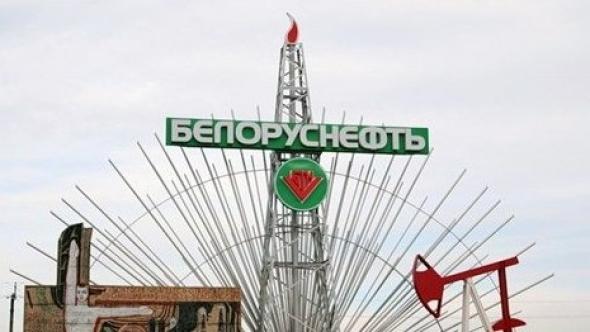
Will Belarus’s Social Model Survive Yet Again?
Publication: Eurasia Daily Monitor Volume: 10 Issue: 198
By:

According to the Legatum Global Prosperity Index (LGPI), Belarus is a country with average prosperity: it is 58th out of 142 countries for which the index in question has been just published (www.svaboda.org/content/article/25150395.html?). Much like on the Human Development Index, according to the LGPI ranking, Belarus is ahead of Russia (61st) and Ukraine (64th)—the two countries with which Belarusians routinely compare their own state. Both comparative rankings match Belarusians’ popular perceptions.
Indeed, Belarus’s social model ensures delivery of such “public goods” as highly subsidized utilities and mortgage loans, free health care, and upkeep of small towns and most rural villages well above the level maintained in Russia and Ukraine. Belarus is also number one in the Commonwealth of Independent States (CIS) on housing construction, and its quality of local roads is a dream of provincial Russians and Ukrainians (Grigory Ioffe and Viachaslau Yarashevich, “Debating Belarus: An Economy in Comparative Perspective,” Eurasian Geography and Economics, 2011, Vol. 52, No. 6: 750–779).
By most accounts, maintaining such a social model is only possible through rapid economic growth and indirect Russian subsidies, including a vastly discounted price of natural gas, duty-free oil imports from Russia (only for oil intended for domestic consumption), and a niche of Russian markets assigned to Belarus’s exports. Once in a while, however, one or two underpinnings of Belarus’s social model falter. Immediately thereafter, market fundamentalists trumpet the imminent threat of Belarus’s economic collapse (the 2011 prediction by Anders Aslund is still well remembered; see https://udf.by/english/economy/48792-anders-aslund-belarus-is-heading-to-default.html). Yet, a non-market solution is then found by the consolidated political establishment, headquartered—as if to add symbolism to the widespread (by now) dismissals of the end-of-history argument—on Karl Marx Street in Minsk. And the cycle resumes.
Right now, Belarus is at a crossroads yet again. In this regard, five media reports deserve scrutiny. The first one reviews Deputy Prime Minister Uladzimir Semashka’s October 30 speech in the Belarusian parliament (https://news.tut.by/economics/372970.html). From January to September 2013, Belarus’s pace of industrial growth was 4.6 percent lower than during the same period in 2012. Semashka attributed part of the problem to the imperfections of the Custom Union’s regulations and suggested that Belarus should more aggressively sell its products outside the territory of the former Soviet Union. For that to happen, the negotiations about Belarus’s accession to the World Trade Organization (WTO) ought to be intensified.
The second report is about the first-ever purchase by a Belarusian company of an oil-and-gas extracting business in Russia (https://news.tut.by/economics/371455.html), something that President Alyaksandr Lukashenka has been suggesting for a long time. Specifically, Belarusneft obtained a Tyumen-oblast-based company, Yangpur, for $110 million. While Yangpur is no giant—in 2013, it planned to extract 67,000 tons of oil and 63.9 million cubic meters of natural gas—the purchase may signal a promising beginning.
The third report is by Fyodor Lykyanov, editor-in-chief of Russia in Global Affairs, titled, “What Lukashenka is talking about” (https://www.globalaffairs.ru/redcol/O-chem-govorit-Lukashenko-16151). Lukyanov warns the Russian political elite that Lukashenka is dead serious—and should be treated accordingly—when he demands economic benefits in exchange for participating in Russia-centered integration projects. Lukyanov refers to Lukashenka’s interview with chief editors of media outlets of the CIS countries in conjunction with the CIS summit in Minsk. “Instead of resolving Russia’s own problems associated with corrupt structures that capitalize on illegal immigrants, Russia is scaring away the neighboring countries that are still united by a common legacy—by issuing threats of visas, sanctions and barriers,” Lukashenka reportedly said during that interview. Lukyanov explains to Russia’s establishment that former Soviet republics cannot possibly want to be integrated with Russia as much as Russia desires to keep them in its orbit. This is because Russia’s logic is that of a geopolitical center of power, whereas the potential integration partners want a boost to their development and well-being. Recognizing that, Moscow should offer its prospective partners truly advantageous conditions that they would not be able to reject.
The fourth report suggests that 42.76 percent of shares of the Mozyr refinery now belonging to the Belarusian state are going to be sold. Note that 42.58 percent of its shares already belong to Russia’s Slavneft. Mozyr refinery is a highly modernized operation and is one of the largest in Europe. So far, selling such assets to foreign buyers has been a taboo, but in view of Belarus’s fiscal problems, this is apparently no longer the case (https://news.tut.by/economics/372806.html). The potential sale is subject to such conditions as maintaining a certain level of employment and financing social obligations of the enterprise.
The fifth report is by Sergei Nikolyuk from the Independent Institute for Socio-Economic and Political Studies, Belarus’s most reputable polling firm registered in Lithuania (https://naviny.by/rubrics/opinion/2013/10/31/ic_articles_410_183503/). Nilolyuk’s major point is that Lukashenka has decided to cope with Belarus’s most difficult fiscal problems in 2014 so that in 2015, the year of presidential elections, he could return to offering social benefits as he did during the run-ups to the previous elections. A close correlation can be observed between the dynamics of Belarusians’ personal incomes and Lukashenka’s electoral rating. Due to the ongoing fiscal crisis, however, Belarus has to cut back on subsidizing utilities and on the scale of housing construction. Already, out-of-pocket payments for utilities have increased from 15.5 percent of their cost in 2012, to 23.2 percent in 2013. Also, in 2012, 4.5 million square meters of new housing was commissioned, a decline from 5.5 million in 2011, and from 6.6 million in 2010 (an election year). Further unpopular measures are expected in 2014 so that by 2015, the government can return to offering free social services to the public. Whether or not the plan will succeed is unknown due to “the law of unintended consequences,” but the attempt is clearly being made, in line with previous practice.
It certainly remains to be seen whether and how Belarus’s social model, declared dead on many occasions, will survive the ongoing fiscal crunch.




